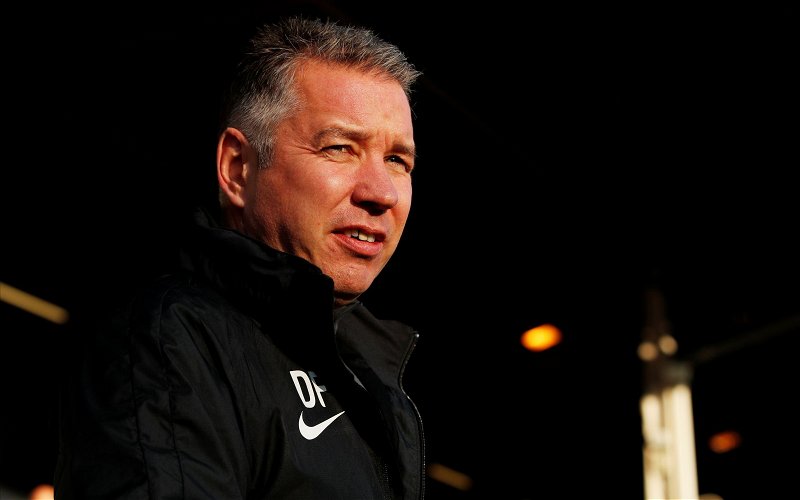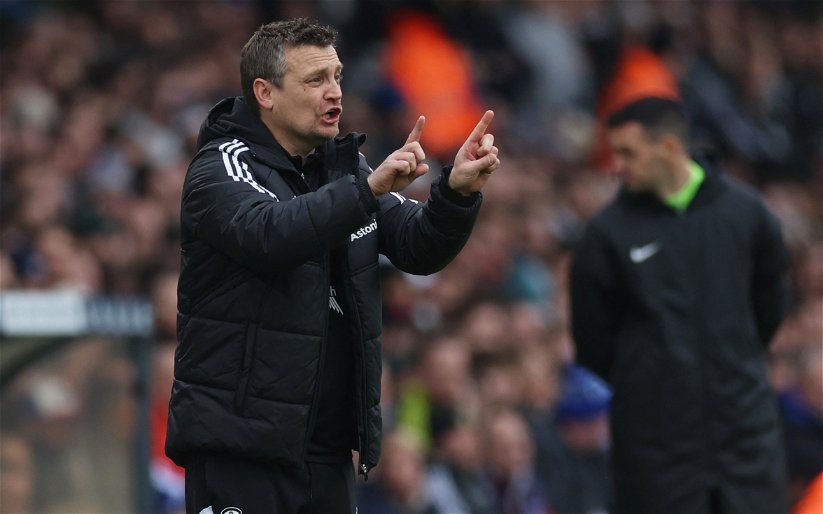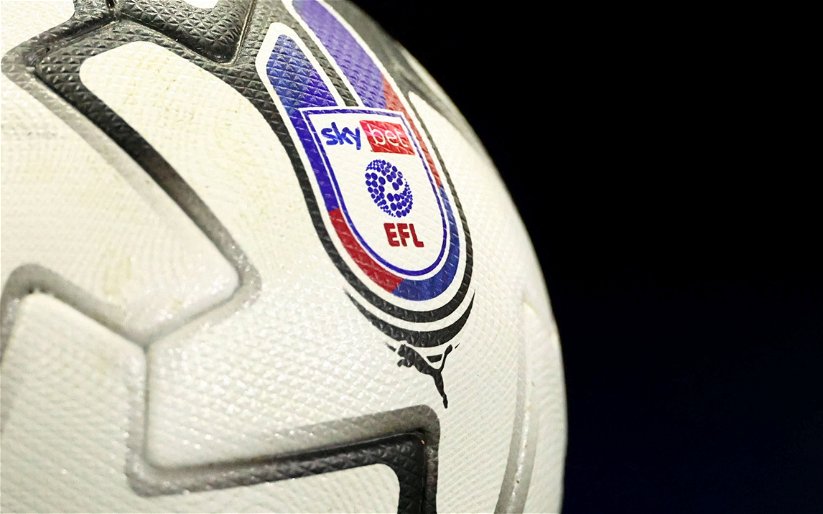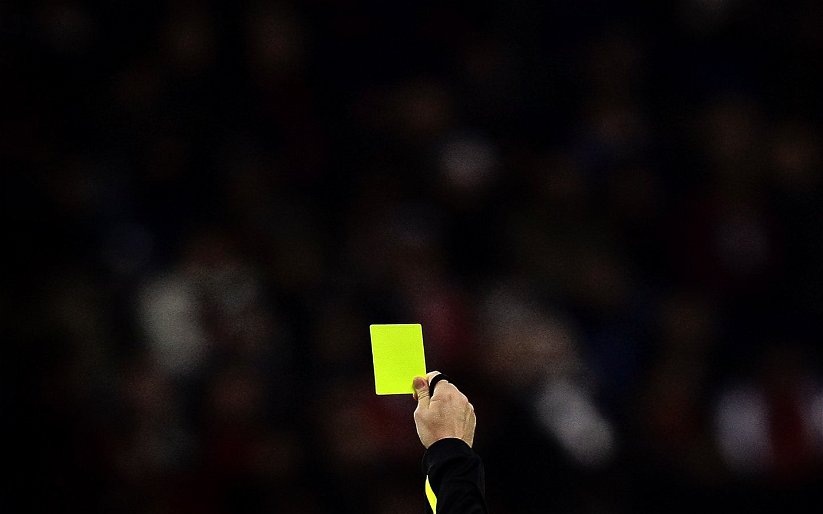Very recently we wrote that it is never easy being the son of a successful father, and that Nigel Clough has faced that particular challenge every day of his career in football. If Clough has found it problematic to step out from his famous father’s shadow, consider the size of the stride needed by Peterborough manager Darren Ferguson. His father Sir Alex needs no introduction of course, other than to say he is the most successful manager of all time. In short, he is an act that is impossible to follow.
And therein lies the solution: it is pointless trying to do so. Despite starting his playing career under his father at Manchester United, Ferguson has chosen his own path in the game. It would have been an easy choice to become part of Sir Alex’s network of coaches and analysts, but Darren has never relied on his famous name. If we disassociate him from his father, Darren Ferguson has actually carved an impressive career as a player and as a manager: over 500 appearances as a player and 600 competitive games as a manager is a record to envy.
Born in Glasgow on 9 February 1972 when his father was on the books at Falkirk, left-sided midfielder Darren Ferguson began his youth career at Manchester United in July 1988 before signing professional forms two years later. He made his league debut on 26 February 1991 in a 2-1 defeat at struggling Sheffield United in the dying days of the old First Division, and he had just turned 19 at the time. He made five appearances that season from which United collected just one point. He made just four appearances in 1991-92, although he did make his debut for Scotland U21 on 25 May 1992 in a 5-0 defeat to the USA at the Toulon tournament. He would go on to collect eight caps over the next eighteen months, scoring no goals.
His big opportunity came at the start of the inaugural Premier League season of 1992-93. With captain Bryan Robson injured, he settled into United’s midfield and made fifteen appearances before he lost his place after a defeat to Aston Villa. Part of the reason was the signing of a certain Eric Cantona from Leeds at the end of November, and the Frenchman revitalised the side. United went from eighth place to winning the title by ten clear points in the space of six months. Darren made only five more appearances for United after that, and the writing was on the wall. He was sold to Wolves for £250,000 on 14 January 1994 as his father commenced building a team to conquer Europe, but at least Darren left with a Premier League medal in his pocket. He made thirty appearances for United, scoring no goals.
Wolves were in tenth place in the First Division at the time Ferguson signed, and with Jack Hayward’s backing were making a serious challenge for the play-offs. His debut came in a 2-0 win over league leaders Crystal Palace at Molineux to move to within five points of the top, but form was erratic and Wolves finished three points short of the play-offs in eighth. Ferguson had an inconsistent season under new manager Graham Taylor in 1994-95, unable to secure a permanent starting place. Wolves had a good season, and were five points behind an automatic promotion spot with four games remaining. Four wins would have given them the title, but the four draws they did collect put them into the play-offs in fourth place. The season ended with a 3-2 aggregate defeat to Bolton. Another promotion push was expected in 1995-96, but a relegation battle is what ensued. Taylor resigned in November with Wolves in the bottom eight, but Wolves could only finish three points above the relegation zone. Ferguson did score the first goal of his career on 29 November 1995 in a 2-1 League Cup win over Coventry, but it had taken him almost five years to get on the score sheet.
Ferguson appeared only sporadically as Wolves had a much better season in 1996-97. Sent off in the final minute of a 2-1 defeat to Bolton at the start of October, he lost his place and did not appear in the first team in the league for another five months. Wolves sat in the top two for much of the season before a run of three defeats in March put a dent in the promotion ambition. Wolves won only three of their last ten games to finish third, four points behind promoted Barnsley. They were then beaten 4-3 on aggregate in the play-off semi-final by Crystal Palace. The 1997-98 season was a disappointment with Wolves finishing a distant ninth, but there was a run to the semi-final of the FA Cup where they went down 1-0 to Arsenal. Ferguson did not appear in that game, and was to play very few matches in 1998-99 before joining Dutch club Sparta Rotterdam on 26 January 1999 on loan to the end of the season. Sparta were having a poor season, and Ferguson scored one goal in fourteen appearances as they finished second from bottom in the Eredivisie. That put them into the end of season promotion/relegation play-offs, and Ferguson appeared in all six games as Sparta retained their Eredivisie place with five wins and one defeat.
On his return to England, he was released by Wolves at the end of his contract after a total of ten goals from 149 appearances. Leaving his options open throughout the summer, he eventually signed for third-tier Wrexham in September 1999, initially on a week to week contract due to the poor financial situation at the Welsh club. Ferguson settled straight into the side and became a mainstay over the next seven years. Despite struggling near the foot of the Second Division and without a league win in twelve games, Wrexham hit the headlines on 11 December 1999 when a Darren Ferguson goal took his new club to a 2-1 win over Premier League Middlesbrough in the FA Cup third round. There was a minor irony, as Boro were managed by Ferguson’s former Manchester United colleague Bryan Robson. After surprisingly losing at home in the fourth round of the cup to fellow Second Division strugglers Cambridge, Wrexham won their last five games to finish in mid-table.
Although Wrexham remained in mid-table for much of the 2000-01 season, Ferguson continued to be the focal point of the side. A £300,000 bid for him from ambitious Wigan Athletic was rejected, and the side finished tenth. Wrexham won only one of their opening eight games in 2001-02, and long-serving club legend Brian Flynn was sacked on 24 September with the side third from bottom of the table. Ferguson was considered for the job, but it eventually went to the experienced Denis Smith. Despite the occasional flurry of points, Smith was unable to prevent the side being relegated to the Third Division well before the end of the season. Wrexham got away to a sound start in 2002-03 under Ferguson’s captaincy, and Smith was named Manager of the Month in September. A great run of ten wins and four draws from the last fourteen games carried them to automatic promotion in third place.
Having re-established themselves in the Second Division in 2003-04 with another mid-table finish, 2004-05 was to deliver mixed emotions. Wrexham started the season relatively well, sitting in mid-table yet again at the end of October, but a poor run dropped them into the bottom two in January. In December 2004 they entered administration with debts of £2.6 million and became the first club to be deducted ten points. Curiously, Wrexham embarked on a run in the LDV Vans Trophy that eventually led to a meeting with Steve Tilson’s League Two promotion-winning Southend United in the final in Cardiff. Wrexham turned the form book upside-down with a 2-0 win after extra time, the second and decisive goal coming from captain Ferguson with two minutes remaining. Perhaps more important than the trophy was the £250,000 prize money. The elation did not last long: a 2-1 home defeat by Brentford three weeks later confirmed their relegation back to League Two.
The 2005-06 season was unremarkable as Wrexham finished in mid-table. Having exited administration in June 2006, they got away to a good start in 2006-07 with three wins and three draws. Unfortunately, their form deteriorated steadily until Smith parted company with the club on 11 January 2007 after a 3-1 FA Cup defeat at Derby. It proved to be his final match in management after more than a thousand games. More notably, it also proved to be the final game of Ferguson’s playing career. Despite being the favourite to replace Smith in the manager’s chair, he was overlooked in favour of first-team coach Brian Carey, and the decision did not sit well. Relationships between the two had been fractious for a year or more, and Ferguson was on his way out of the club shortly afterwards. Ferguson is often regarded as one of the best midfielders to wear Wrexham’s colours, and ultimately made a total of 336 appearances, scoring 30 goals.
The management ambition was not to be delayed for long, however, and on 20 January 2007, he was named player-manager of fellow League Two side Peterborough United. Despite his title, he never made an appearance for the club, and his playing career was over at the age of 35. The side he took over had lost its last six league games under previous manager Keith Alexander, slipping from to tenth in the table. His first win came in February over former club Wrexham, and things stabilised thereafter. A good end of season run of just two defeats from thirteen games augured well for 2007-08, and that is exactly what happened. Inspired by 30-goal Aaron McLean, Peterborough swept to automatic promotion in Ferguson’s first full season as a manager and also reached the fourth round of the FA Cup, beating Wrexham along the way. Ferguson also picked up his first Manager of the Month award in March 2008. Ironically, Wrexham finished bottom of League Two and dropped out of the Football League. They have not been back since.
If 2007-08 was a good season, 2008-09 was one of the best in the club’s history. Despite losing three of their opening four games, Peterborough went straight through League One to win automatic promotion to the Championship at the first attempt. A 1-0 win at Colchester in the penultimate game took Peterborough into the second tier for only the second time in their history. The 2009-10 season was always likely to be a battle for survival against much bigger clubs with bigger budgets, and Peterborough collected just two points from their first seven games to slip to the bottom of the table. Somewhat surprisingly, Ferguson was sacked on 9 November 2009 after two wins from the first sixteen games. It seemed harsh treatment for the manager who had just taken the club to two promotions in successive seasons.
As clubs queued up to employ Ferguson, it was Championship rivals Preston North End who secured his services on a three-year contract on 6 January 2010. Preston had started the season well and had been in the top four before a run of one win in ten games led to the dismissal of previous manager Alan Irvine. There was to be no quick fix, and Preston finished the season in seventeenth place, seven points clear of relegation. Peterborough suffered a worse fate, relegated in bottom place despite the change of manager. Preston got off to a terrible start in 2010-11, losing six of their first seven games. There was an incredible game at Leeds in September where Preston came back from 4-1 down to win 6-4, but it was mainly a struggle. Although things improved a little, another poor run led to Ferguson’s dismissal on 29 December 2010, exactly one year to the day since the dismissal of his predecessor. With Preston rock bottom of the table, this one was hardly a surprise. The sacking came back to bite Preston when Sir Alex Ferguson recalled three Manchester United players who were on loan at Deepdale, and Stoke manager Tony Pulis also recalled two of his players. Having lost five players in one fell swoop, Preston slipped to relegation thereafter.
In a vaguely bizarre and eventually virtuous circle, Ferguson was reappointed manager of Peterborough a couple of weeks later on 12 January 2011. Peterborough had eaten their way through three different managers in the year or so that Ferguson had been away in spite of a recovery that had carried them to fifth at the mid-point of their first season after relegation. Ferguson picked up the League One Manager of the Month award for February as Peterborough started to score goals for fun. A very comfortable fourth place took them into the play-offs where MK Dons were beaten 4-3 on aggregate before three goals in the final twelve minutes earned a 3-0 win over Huddersfield at Wembley. It was Ferguson’s second promotion to the Championship in three seasons and he had been sacked twice in between.
The 2011-12 season was all about consolidation and ensuring a second season in the Championship. The highlight was a 7-1 thumping of Ipswich Town in August, and at least Ferguson survived the eighteenth-place finish without being fired. The second season was much tougher with Peterborough losing their opening seven games. They picked up just thirteen points from their opening twenty-one games before an excellent run of eleven wins and eight draws from the next twenty-four gave them a fighting chance of staying up. Peterborough went into the final day out of the bottom three on goal difference. Their last game was away to promotion-chasing Crystal Palace, and despite leading twice, they went down 3-2 to a last-minute Jedinak goal. A point would have kept them up. The world awaited Ferguson’s departure, but this time he kept his job.
Posh got away to a great start back in League One in 2013-14, winning ten and drawing one of their opening twelve games. Then a run of nine defeats from the next twelve games derailed the automatic promotion bid, and a shock home defeat in the third round of the FA Cup at the hands of non-league Kidderminster did not improve the mood. Consolation came in the form of the Johnstone’s Paint (Football League) Trophy with a 3-1 win over Chesterfield at Wembley, and five wins from the final eight league games secured a place in the play-offs. Unfortunately, the promotion bid ended with a 3-2 aggregate defeat to Leyton Orient in the semi-final. Promotion was the sole objective in 2014-15, and Peterborough sat second in mid-October. Then a run of nine defeats from twelve games dumped them into the bottom half and led to Ferguson’s departure on 21 January 2015.
Ferguson’s next port of call was League One strugglers Doncaster Rovers on 16 October 2015. Doncaster were only out of the relegation zone on goal difference at the time, and a steady improvement in form carried them into the top half by the middle of January. Rovers had closed to within seven points of the play-off places, but promotion dreams were shattered by a dreadful run of two points from fourteen games that saw the side plummet into the bottom three. Although there were two wins in April, Rovers were relegated on the final day after a 0-0 draw with Burton.
Doncaster immediately set about the task of promotion and returned to League One with a 1-0 win over Mansfield with five games to spare. The title also looked in the bag as Doncaster led the League Two table by six clear points with four games remaining, but three successive defeats saw them drop to second. That meant that they went into the final game of the season needing at least a draw at relegation-threatened Hartlepool to stand any chance of taking the title. Hartlepool needed to win at all costs, and that is what they did by 2-1. As it happened, a win would have secured the title, and ironically Hartlepool went down anyway. Doncaster never looked likely to trouble the League One promotion places in 2017-18, neither did they look in any danger of relegation. After finishing in fifteenth place and re-establishing the side in League One, Ferguson resigned on 4 June 2018.
And so the wheel turned full circle for the second time. Following the dismissal of Steve Evans after a run of two wins from nine games, Ferguson was appointed manager of League One Peterborough for a third spell on 26 January 2019. Initially, on a deal to the end of the season, Ferguson was unable to revive their faltering promotion challenge and they could only finish seventh, ironically one point behind Doncaster in the final play-off position. A three-year deal was confirmed in March, and Peterborough seemed set for another promotion challenge in 2019-20.
Ferguson brought in eleven players during the summer of 2019 including the big-money signing of Bristol City striker Mohamed Eisa, but they lost their first two games. Form improved thereafter, and Posh remained in contention for promotion in a tight league. A run of two points from six games over the new year period saw the side drop to tenth before seven wins and a draw revived the challenge at the top. A 2-0 win over promotion rivals Portsmouth lifted Peterborough to fourth place, three points behind an automatic spot, but the season was set to end in acrimony. When the coronavirus epidemic led to the curtailment of the season, the points-per-game calculation left Peterborough just outside the play-off places in seventh. Legal action was threatened but never materialised, and Peterborough were left with no option but to prepare for their eighth successive season in League One.
Darren Ferguson already has two promotions from League One with Peterborough, and will be aiming for a most unusual hat-trick: success this season would give him three promotions from the same division with the same club in three different spells as manager. Whether or not lightning can strike for the third time remains to be seen, but he has a very good record in League One and knows how to get promotion from it. Despite protestations to the contrary, Ferguson has substantial financial backing from the club’s owners, and it would take a brave man to bet against Peterborough this season. With the advent of the salary cap, this season could be the last when the club holds a financial advantage.
At least Darren Ferguson can claim one victory over his famous father: he has four promotions as a manager, whereas Sir Alex has just one.
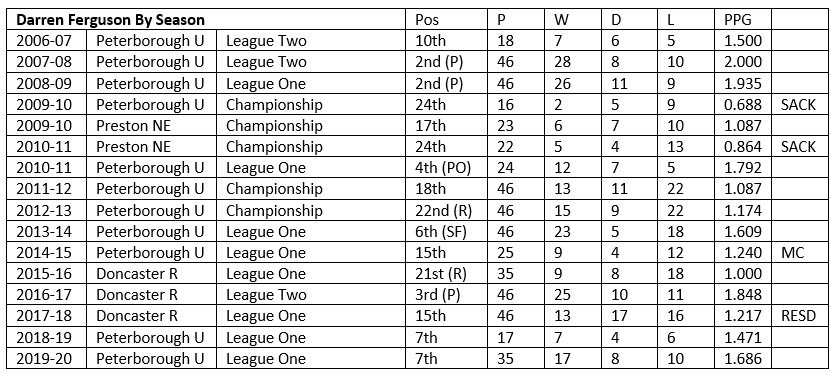
Key:
P = Promoted; R = Relegated; SF = Lost in play-off semi-final; F = Lost in play-off final; PO = Won play-off final; D = Demoted.
Figures are league games only; cup matches and play-offs are not included.
League position shown is either the position at the end of the season or the position at the time of departure.

Writer: Scotimp
If you haven’t already had a go at our quizzes, this is a great way to learn some random information about the Football Club, as well as helping us generate much-needed page views: Quiz No.1, Quiz No.2, Quiz No.3, Quiz No.4, Quiz No.5, Quiz No.6, Quiz No.7, Quiz No.8, Quiz No.9, Quiz No.10, Quiz No.11, Quiz No.12, Quiz No.13, Quiz No.14, Quiz No.15, Quiz No.16, Quiz No.17, Quiz No.18, Quiz No.19, Quiz No.20, Quiz No.21, Quiz No.22, Quiz No.23, Quiz No.24, Quiz No.25, Quiz No.26, Quiz No.27, Quiz No.28, Quiz No.29 and Quiz No.30.
Who Are The League One Managers?
No.16: Darren Ferguson (@ThePoshOfficial):https://t.co/PK8yD7FsRS#PUFC #AUnitedCity #Peterborough pic.twitter.com/4mclCxaRLb
— Vital Lincoln City (@VitalLincoln) September 4, 2020
https://www.facebook.com/VitalLincolnCity/posts/3243184555717767
